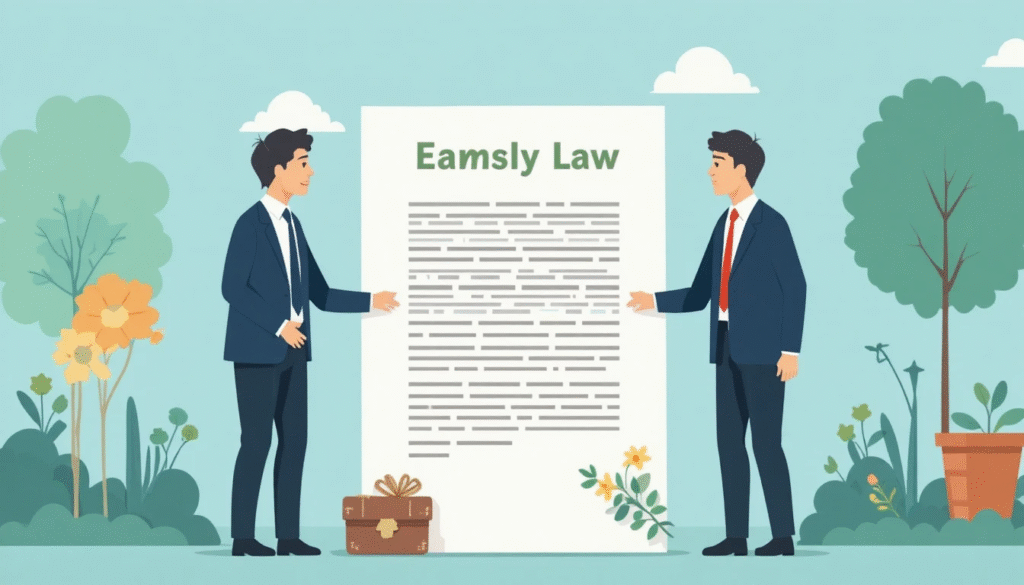
When a loved one passes away, their — which includes money, property, and personal belongings — must be legally distributed to heirs or beneficiaries. This legal process is called probate. Handling probate can be complex and emotionally exhausting, which is why many families turn to a probate lawyer for help. But what exactly does a probate lawyer do, and why might you need one? Let’s explore everything you should know.
Understanding Probate
Probate is the court-supervised process of validating a will, settling debts, and transferring assets to rightful heirs. If someone dies with a will, the probate court ensures that it’s legally valid. If there’s no will, the estate is distributed under state intestacy laws.
While the process sounds straightforward, it often involves paperwork, court hearings, asset appraisals, and legal disputes, which can make things complicated — especially during a time of grief. That’s where a probate lawyer steps in.
Who Is a Probate Lawyer?
A probate lawyer, also known as an estate attorney, is a licensed legal professional who specializes in managing the probate process after someone’s death. Their main goal is to make sure the deceased person’s wishes are followed correctly and all legal obligations are fulfilled.
They act as a guide, helping the executor (the person appointed to manage the estate) or the administrator (if no will exists) navigate the court procedures and paperwork required to settle the estate.
Key Responsibilities of a Probate Lawyer
A probate lawyer’s job varies depending on whether there’s a will or not. However, their core duties generally include the following:
- Validating the Will – One of the first steps in probate is to confirm that the will meets legal standards. The lawyer ensures that it’s properly signed, witnessed, and filed with the court.
- Filing Legal Documents – A probate attorney prepares and submits all necessary court petitions, notices, and affidavits to start and manage the probate case.
- Identifying Estate Assets – They help locate, appraise, and secure the deceased’s assets such as real estate, bank accounts, investments, and personal property.
- Paying Debts and Taxes – Before heirs receive their inheritance, the estate must settle any outstanding debts, bills, and taxes. The lawyer handles these payments according to the law.
- Managing Disputes – Sometimes family members disagree about the will’s validity or asset distribution. A probate lawyer acts as a mediator and, if needed, represents clients in court disputes.
- Distributing the Estate – Once debts are paid, the lawyer ensures all beneficiaries receive their proper inheritance according to the will or state law.
- Closing the Estate – After all steps are complete, the probate attorney files final documents with the court to officially close the estate.
When There Is a Will
If the deceased left a valid will, the probate lawyer assists the executor in carrying out the deceased’s wishes. They interpret the will’s language, file necessary forms, and ensure that assets are distributed properly.
They also confirm that the will complies with state probate laws and that the executor doesn’t face personal liability for mistakes during the process.
When There Is No Will (Intestate Estates)
If someone dies without a will, the estate is considered intestate. In this case, a probate lawyer helps the court-appointed administrator distribute assets according to state law.
This process can become complicated — especially if there are multiple heirs, conflicting claims, or unknown assets. The probate lawyer ensures everything is handled fairly and legally.
Why You Might Need a Probate Lawyer
Even though not all estates require legal representation, there are several situations where hiring a probate attorney can save time, money, and stress:
- The estate has significant value or complex assets (like multiple properties, investments, or businesses).
- There are disputes among heirs or family members.
- The deceased left unpaid debts or unclear records.
- You need to minimize estate taxes and ensure compliance with local laws.
- You’re the executor or administrator and want professional help managing your responsibilities.
Without proper guidance, one small legal mistake can cause delays or even personal liability for the executor — something a probate lawyer can help you avoid.
Probate Lawyer vs. Estate Planner
Many people confuse probate lawyers with estate planning attorneys. The difference lies in timing:
- An estate planner helps you prepare your estate before death by creating wills, trusts, and asset protection strategies.
- A probate lawyer, on the other hand, works after death to ensure that those plans are legally executed and assets are properly transferred.
Both roles are essential for complete estate management, and in many cases, the same attorney can perform both functions.
How Much Does a Probate Lawyer Cost?
The cost of a probate lawyer depends on the estate’s complexity, the lawyer’s experience, and the state’s regulations. Common fee structures include:
- Hourly rates – typically $200 to $500 per hour.
- Flat fees – a fixed amount for handling the entire probate process.
- Percentage of the estate – in some states, lawyers charge a percentage of the estate’s total value.
Hiring a probate attorney might seem like an added expense, but in most cases, their guidance can save the estate far more money by preventing legal disputes and tax errors.
How Long Does Probate Take?
The duration of probate varies widely. Simple estates can be settled in a few months, while complex ones may take a year or more. Delays often occur due to missing documents, disputes, or court backlogs.
A skilled probate lawyer helps streamline the process, ensuring all legal steps are completed efficiently and correctly.
Benefits of Hiring a Probate Lawyer
Here are the major advantages of working with a probate attorney:
- ✅ Saves you time by handling court procedures and paperwork.
- ✅ Reduces stress during an already emotional time.
- ✅ Prevents costly mistakes in asset distribution or tax filing.
- ✅ Offers expert advice on local probate laws.
- ✅ Helps resolve family disputes peacefully.
In short, a probate lawyer protects your rights, reduces your legal risk, and ensures the estate is managed with professionalism and care.
Final Thoughts
The probate process may seem overwhelming, but with the help of a skilled probate lawyer, it becomes far more manageable. Whether you’re an executor, beneficiary, or family member, having legal support ensures that your loved one’s legacy is handled with dignity and precision.
In 2025 and beyond, as estate laws evolve and families become more complex, the role of a probate attorney remains essential. They don’t just manage paperwork — they provide clarity, protection, and peace of mind during one of life’s most challenging transitions.

